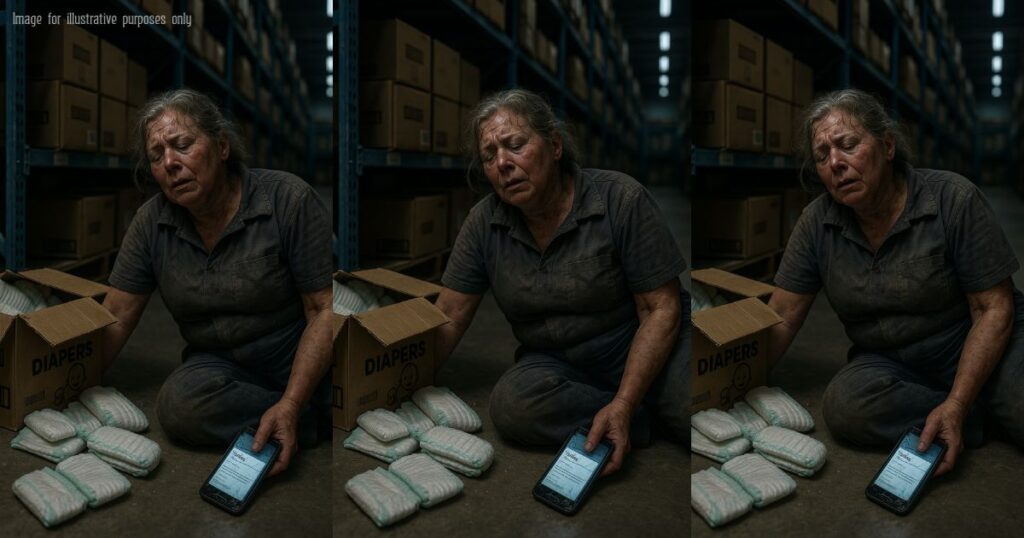Winter came fast that year. The kind of Midwestern cold that made the air in your nose crackle and the windows sweat. I watched frost gather on the sill each morning, soft as powdered sugar, while I waited for the kettle to sing.
Marcus stayed through Christmas. First time in three years. He took over my kitchen like he owned the place — burned the biscuits, forgot to salt the beans, and left wet towels everywhere. But Lord, I wouldn’t have changed a single thing.
He brought Lisa too.
Sweet girl. Nervous. Called me “ma’am” until I made her stop. She helped me fold laundry one evening and whispered, “He loves you more than he knows how to say.” I just nodded. That kind of love doesn’t need much saying anyway. It shows up in how a boy carries bags that aren’t his, or how he fixes the one loose tile in the bathroom floor without being asked.
On New Year’s Eve, we watched fireworks on the old fire escape outside my apartment. Wrapped in blankets, paper cups of cider in hand. Marcus leaned back and sighed.
“I used to think this place was small,” he said. “Now it feels like the only thing that ever made sense.”
I looked at him — that boy with man’s shoulders and his father’s chin — and I saw something flicker in his eyes. The look of someone searching for where he came from, even while chasing where he’s going.
“You’ll build big things,” I told him. “But don’t forget how to carry the small ones.”
He didn’t answer. Just reached for my hand and held it like he used to when he was little, afraid of thunder.
Spring came slow, as it always does here.
Tulips poked through the dead ground like quiet promises. And I found myself walking a little more each day — from the kitchen to the post office, from the post office to the church steps, just to sit and feel the sun.
My back still ached. It always would.
But the pain had shape now. Purpose.
One morning in March, I got a letter in the mail — real envelope, real stamp. No return address. But I knew the handwriting.
Inside:
“Ma,
I got the internship. NASA. I leave in June.
I said yes because I remember the night you wrapped my feet in grocery bags so my shoes wouldn’t leak.
I said yes because you carried the weight of both of us for so long.
I said yes because I want to build something that lasts — like you did.And I’ll be home in May. To fix the bathroom sink, finally.
Love you,
—M.”
Sometimes I sit on the back stoop and read that letter out loud. Just to hear it again.
I don’t work anymore. Not in the way I used to. But the funny thing is — I’ve never felt more useful.
I tutor at the library twice a week now. Kids who can’t read yet. I teach them how to sound out words like “hope,” “future,” and “mom.”
Some of them come in hungry. Some come in tired. But when I see them sit up straighter after getting something right, I feel it — the old strength again.
Not in my back.
But in my bones.
In my soul.
The warehouse is still there. I pass it sometimes on the bus. Same beige walls. Same trucks.
I wonder if someone new has my old locker.
If they eat crackers at lunch because it’s all they can afford.
If they have a picture taped inside — not of a lover, but of a child they’re working for.
If so, I hope they know this:
Every bruise, every long night, every aching joint — it counts.
Even if no one claps when your shift ends.
Even if no one sees you drop to your knees with that last box.
Because someone always sees.
Maybe it’s a son.
Maybe it’s a student.
Maybe it’s a stranger who grows into something stronger because of you.
I used to think strength was measured in how much you could lift.
Now I know it’s measured in how much you can give away — and still get up the next morning to give again.
And that’s what I did.
I carried boxes so my son could carry books.
So he could carry hope.
So he could carry me.
And in the end, he did.


